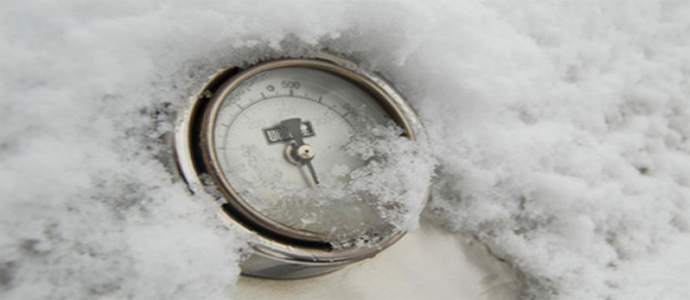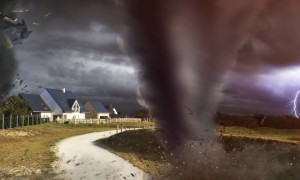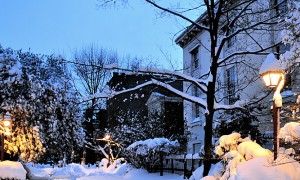Winter has arrived and it has brought some of the chilliest days in over a century. It is crucial, now more than ever,to make sure your home is a safe haven to survive such extreme weather. In sub zero temperatures, home maintenance can feel like a big daunting task. Here are some tips to handle common winter plumbing problems which I hope will make plumbing jobs seem less difficult and tedious:
1. Frozen Pipes
It’s common to have pipes frozen due to extreme cold weather. This usually occurs when the water pressure from the main is high and the temperatures are freezing. To avoid broken and frozen pipes, make sure to leave the tap opened a little to let water flow continuously. The constant flow of water prevents the pipe from freezing. IMPORTANT: Be sure nothing is blocking the drain to avoid flooding.
In addition to this you can try thawing the frozen area of the pipe with hot water. If you do notice a frozen pipe, turn off the main water supply to prevent the frozen pipe from bursting. You will find the main switch underneath your kitchen sink or outside your home. Do not try to “do it yourself” in such a situation and call for professional help immediately.
2. Poor Heating
Poor heating in severe cold weather is arguably the worst thing that can happen to any home. Regular maintenance of heating systems, especially before winter, and even during winter is recommended. This is because the heating system runs at full pressure during sub zero temperatures. Get in touch with a gas plumber who can identify the real culprit behind the poor heating. This is possibly not DIY-able, so don’t try your hand at it. An OHM meter test can tell if the element needs to be replaced.
3. Failing Hot Water Systems
Unfortunately, the hot water system has to fail when it is needed the most, i.e. in the winter. Ideally, the service of the hot water system should be done well before winter approaches, since the hot water system is not being pushed to full capacity. Hot water system units may seem out of order, especially when a homeowner takes a shower. Some suggest that no gap between showers can prevent from the hot temperature to cool down. However, it’s good to give 10 minutes gap between two showers. This keeps the temperature consistent.
Some plumbing problems in winter are unavoidable due to increasingly lower temperatures. However, with these tips, the problems can be prevented and sometimes even avoided. Make sure to find a licensed plumber who can answer all your plumbing needs.
Author Bio:
Alan Alaxandar is a writer having an experience in writing for small businesses. Currently he is working for Doherty Plumbing Solutions Find Alan on Twitter, Facebook, and on Google+
Cover photo via ldr4service







Great post
In winters season there are a lot of issues related to plumbing and most common among them are frozen pipes that can result in bursting the pipes. Water heaters also have a lot of problems and sometimes there are cracks near the walls where water heaters are installed. Burst pipe repair process becomes costly if it is not done at an early stage.
Most of the problem due to frozen pipes is in kitchen area. One of the ways to detect that the pipe is frozen is when you have low water pressure in the pipes. Having isolation valves in the pipes can help in turning off the water supply while you are doing a fixture.
This winter season we have faced a lot of problems in the kitchen pipes and laundry pipes connection. The plumber has installed some isolation valves in the pipes that were purchased from http://southcoastsales.com/products?page=shop.browse&category_id=260. An isolation valve is used for safety purpose in the pipes. The flow of water can be controlled by the spigot present above the sink. During the maintenance process the isolation valves are shut off and necessary repair can be done easily as there is no water flow. During winters garden hose should also be checked as in winters water can freeze and put pressure on the connection system. Pipe insulation should be done for the pipes that are outside or exposed to air in winter season.
People do Seal up any air leaks that are near outdoor pipes because pipes
cannot always be see they are often put between our walls or under the ground.
The cold air can get inside and freeze your pipes sometime.
Sophia@Kmpplumbing.com